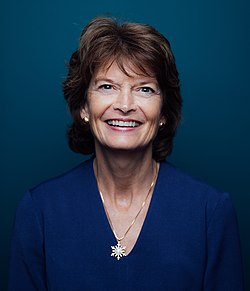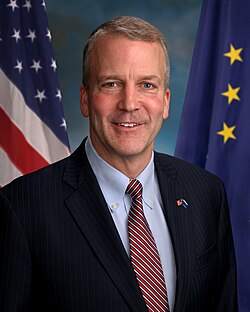Alaska Republican Party | |
|---|---|
 | |
| Chairman | Carmela Warfield |
| Governor | Mike Dunleavy |
| Lieutenant Governor | Nancy Dahlstrom |
| Senate President | Gary Stevens |
| Membership (2024) | |
| Ideology | Conservatism American Unionism |
| National affiliation | Republican Party |
| Colors | Red |
| Statewide Executive Offices | 2 / 2 |
| State Senate | 11 / 20 [a] |
| State House | 19 / 40 [b] |
| U.S. Senate (Alaskan seats) | 2 / 2 |
| U.S. House of Representatives (Alaskan seat) | 1 / 1 |
| Website | |
| alaskagop | |
The Alaska Republican Party is the affiliate of the Republican Party in Alaska, headquartered in Anchorage. [2]
Contents
- History
- Organization
- Current elected officials
- Members of Congress
- Results
- Presidential
- Gubernatorial
- See also
- Notes
- References
- External links
It is currently the favored party in the state, controlling both of Alaska's U.S. Senate seats and the governorship. Republican presidential nominees have won Alaska in recent elections; the last and only Democrat to carry Alaska was Lyndon B. Johnson in 1964. [3]




